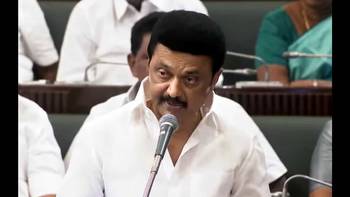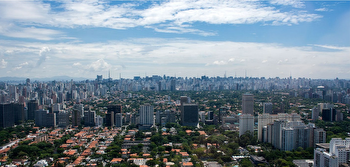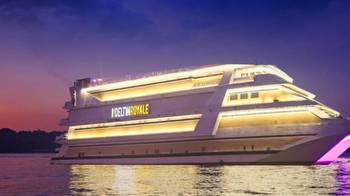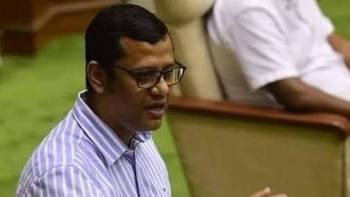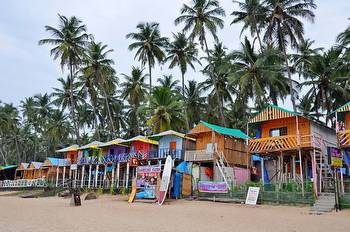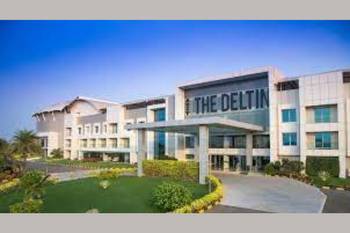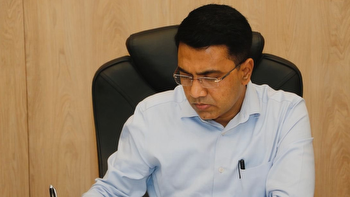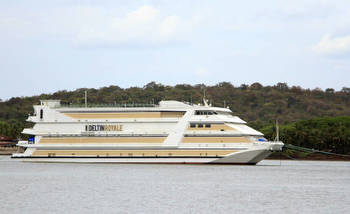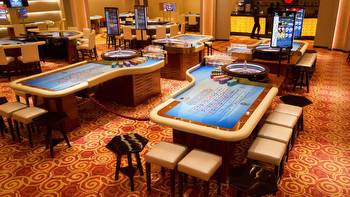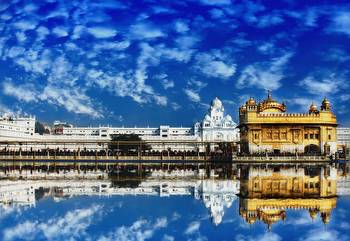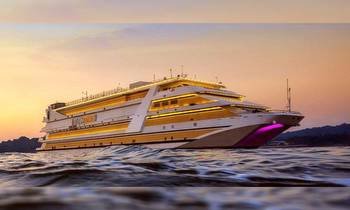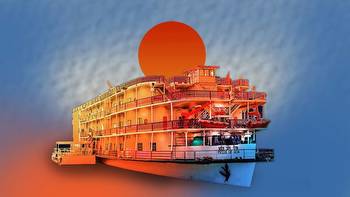Casinos: Goa's trump card or bad bet?
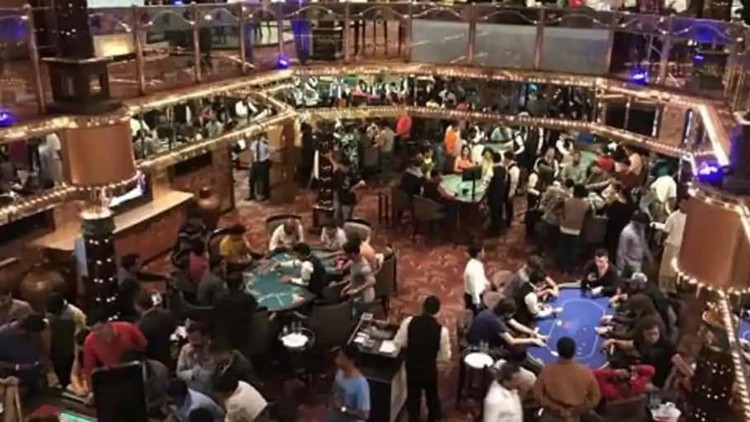
Goa’s largest casino operator the Deltin Group and its two subsidiaries, HighStreet Cruises Pvt Ltd and Delta Pleasure Cruise Pvt Ltd, which runs three offshore and one 5-star casino in Goa, possibly the state’s single largest tax contributor, are battling multiple notices from the tax authorities that, if penalties are included, amounts to ₹23,000 crore. The matter has been posted for hearing in February 2024. Its claim of being taxed into bankruptcy sent shockwaves through the industry.
When the first offshore casino M V Caravela sailed into the waters of the River Mandovi in 1999, few would have thought that one day, the state would one day have six gaming vessels that float within a kilometre stretch of the Mandovi with crowds jostling on the half a dozen jetties to take the feeder boats to ferry them to the anchored vessels.
“When they first amended the law to allow for casinos, people, especially women’s groups protested against the decision and the government then announced that casinos would only be allowed ‘offshore’ so that the local population is not affected or ruined by gambling,” Sabina Martins, the convenor of AAAAG (Aam Aadmi Aurat Against Gambling), an umbrella organisation of activists against gambling, said.
Goa, together with Daman and Diu and Sikkim is one of the few places in the country that permits casinos. Gambling is allowed through an amendment to the Goa Public Gambling Act brought in first in 1992, which allowed the government to authorise 5-star hotels (on land) to have "electronic amusement" (slot machines). A subsequent amendment in 1996 allowed table games (poker, etc.) only onboard "offshore" casino vessels.
“Over the years, they have diluted the law to allow the boats to anchor in the River, allowed gambling within five-star hotels and kept diluting the criteria to which hotels could host casinos. The changing law has always benefited the industry and regulation has been lax,” Martins added.
The companies that run the business are now a mainstay not just in Goa’s casino landscape, but also in the state’s social-cultural one.
The Deltin group is the principal promoter of FC Goa, a franchise that is the football-loving state’s sole representative at the premier Indian Super League. Former promoters Srinivas Dempo and Dattaraj Salgaocar, both mining barons, were edged out, a move that was indicative of a shift in Goa’s business and industrial landscape. Owning football clubs was once a near-exclusive privilege of Goa’s mining companies.
According to the government replies in the state legislative assembly during the monsoon session earlier this year, Goa’s 17 operational casinos – six offshore and 11 onshore – pay ₹354 crore in annual recurring licence fees, ₹437.23 crore from GST, ₹11.42 crore to the River Navigation, Fisheries and Ports Departments for rent of jetties and navigation charges another ₹9.03 crore in VAT and Excise duties besides around ₹1 crore towards other departments like the Pollution Board and the Labour Department as fees for various services.
In all, casinos contribute ₹812.68 crore to Goa's coffers. By comparison, the state’s mining industry used to contribute ₹1100 crore to the state’s coffers annually during the peak years of 2008-2012.
Goa opposes hike in the GST on casinos
It’s no wonder then that the ruling establishment is speaking the language of the casino industry -- much like it once did for the mining industry.
At the GST Council meeting, Goa had opposed the hike in GST for casino gambling, online gaming and horse racing to 28% and had sought that the tax be collected based on gross gambling revenue (GGR) and not the full face value of the purchase transactions.
“Everybody in the industry -- be it casinos, online gaming or horse racing, they wanted the entire calculation to be done on GGR for the purposes of taxation,” Goa’s representative to the GST council Mauvin Godinho said.
“When the Central Government wanted to hike the tax on casinos the Goa government was quick to speak out against it, but when it comes to hiking fees on local commuters the Goa government is quick to do so,” Valmiki Naik in AAP leader said.
Notwithstanding Goa’s opposition, the GST council held in early August formalised its decision to impose a 28% tax on casinos, online gaming and horse racing on 28% of the full face value of the bets placed, a move that upset Goa and the state’s casino industry.
“The state government’s move to oppose the hike in GST is counterproductive. As it is the casinos were using a loophole in the law to pay only around one-fourth of the dues that they were otherwise liable for. That loophole has now been closed after the GST Council decided to tax each bet rather than the casino’s gross gaming revenue. If their dues are paid in full, the money will be enough to wipe out the state’s debt,” Congress leader Viriato Fernandes said.
“The Union finance secretary is on record to say that the change in GST for gambling will bring in 20,000 crore to the public exchequer, which can then be used for the welfare of the people, why is Goa opposing this,” Fernandes added.
Political punching bag
Casinos have for long been a punching bag for the state’s political parties that took turns in opposing them depending on whether they were in power or not.
During the period from 2007 to 2012 when under the Congress regime, the number of offshore casinos rose from one to five, the Bharatiya Janata Party (BJP), under then opposition leader Manohar Parrikar led the political campaigns, torch rallies and sit-in protests accusing the then Congress government of “destroying the culture of the state and its historic capital city.”
Parrikar also famously promised that if voted to power he would move the casinos out of the River Mandovi within one month of being voted to power.
“Bharatiya Janata Party (BJP)'s government decision to permit casinos to operate in Goa when gambling is illegal in all other states in India has prompted criticism from the Congress Party. The Congress Party was the first to allow gambling in Goa when in 1992, it amended the Goa Public Gambling Act to allow slot machines in five-star hotels. Later, table games were permitted offshore, during the tenure of Congress chief minister Pratapsingh Rane. The BJP opposed these developments at the time. Nevertheless, after coming to power in Goa, BJP chief minister, Manohar Parrikar granted a license for Casino Goa to commence operations,” documents leaked by Wikileaks (in 2013) revealed what US diplomats were reporting about the casino situation in Goa between when Goa saw a boom in casino licences.
Once elected, and under pressure to deliver on his promise, Parrikar instead brought amendments to the Goa Public Gambling Act, to allow only tourists -- a person or a group of persons, who have attained the age of 21 years, including pilgrims who are on a visit to the State of Goa, and not domiciled or permanently residing in the State of Goa, holding a valid tourist permit -- to enter casinos.
A new authority, called the Gaming Commissioner was constituted, to issue tourist permits among other regulatory responsibilities.
Parrikar also promised that the casinos would be moved out, just as he had promised when an alternate location was found -- suggesting that he was keen on setting up a gaming zone where all the casinos would be located -- widely believed to be in the vicinity of the newly built international airport in north Goa.
Atanasio “Babush” Monserrate succeeded Parrikar as legislator and representative of the state capital Panaji. In the 2019 bye-election held after Parrikar’s passing, he promised that the casinos would be gone within 100 days of being elected. He did not keep that promise.
“If you take it (casinos) and place it in some isolated place… how many people (customers) would go there and why should they go there? People want to live where the beaches are where the water is,” a casino operator who runs both hotel-based and offshore casinos, who did not wish to be identified, said.
Public pressure meant that in 2013, the state cabinet passed a resolution that no more offshore casinos would be allowed in the state. Since then, while the number of casinos has remained the same, the vessels have gotten bigger, and brighter and can now accommodate more guests at a time.
Goa Chief Minister Pramod Sawant had in 2019 said that it would be improper to tell the casinos to leave. “Those who have invested in the state, we can’t tell them to get up and go. We will have to decide on a policy, else in the future investors will not come to Goa. Definitely, after the casino policy is finalised and the gaming zone is declared we will shift them. But until then we cannot provide a time frame,” Sawant said.
“The government’s process to declare a gaming zone at Mopa is already on, the process to finalise the casino policy is also on. In the coming time, the gaming zone will also be declared and the policy will also be finalised. Yes, they will be shifted, naturally, they will have to be converted to land-based casinos,” Sawant added.
Little has moved in the direction since Sawant spoke in 2019 in part because of delays in the inauguration of the airport that began operations only in January.
Since then, however, casinos have ceased to be the political issue it once was. Protests against casinos are few and far in between, and when the River Navigation Department cordoned off yet another portion of the state’s waterfront that was hitherto publicly accessible space to set up yet another casino jetty no protests were held.
“We have been here for more than two decades. We are employing several thousand, we are contributing heavily to the state in the form of taxes, etc. Definitely, we are supporting the tourism cause rather than spoiling it, some suggest,” another casino operator said.
The road ahead
The fight has now shifted to Pernem, Goa’s northernmost taluka, where a Deltin township resort cum casino is being planned not far from the new airport. Locals are fighting the project claiming it will ruin their youth and the village environment. The project was given a clearance by the State Environment Impact Assessment Authority in late October.
“The project is being built on land of 3.80 lakh square metres and will have a maximum capacity of around 45,000 people of which it will require staff of around 10,000 people. Such a project is coming up in a village whose entire population is around 6,000. The experts need to be asked how they can approve a project like this and what impact it will have,” Swapnesh Sherlekar, an activist said.
The township is expected to be ready by 2027.
On the other hand, the casino operators continue to face the twin trials of the pending GST notices that have been temporarily stayed by the high court, as well as the inherent uncertainties that come with the temporary nature of their licences -- licences are renewed for a period of one year or “until a suitable location can be found, whichever is earlier” a clause they say leaves them vulnerable to changing political attitudes.








